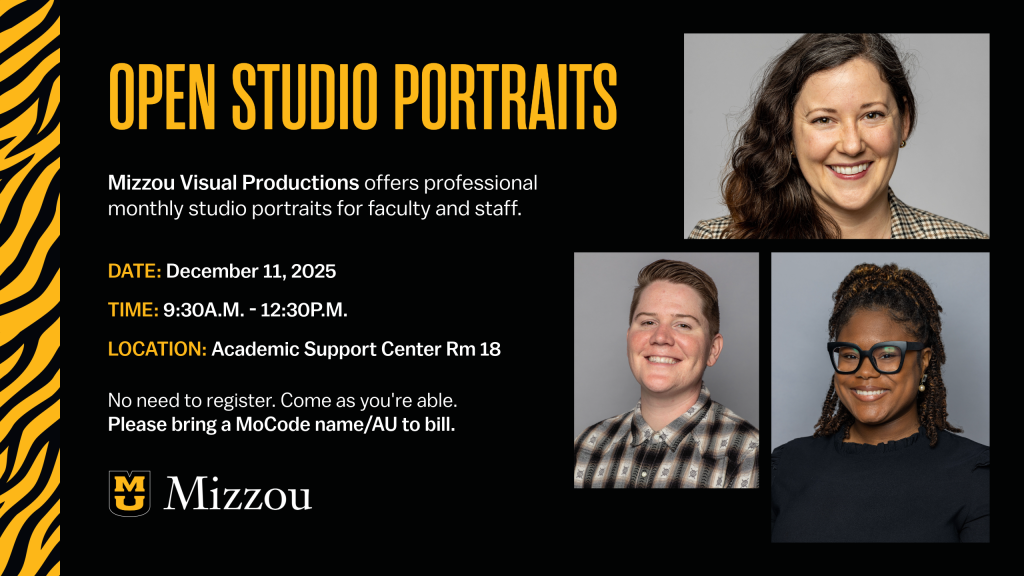If you need a headshot, contact Shannon Cary (carysn@missouri.edu) for a MOcode.

Staff news
In the News
“Photo gallery: Autumn leaves paint Mizzou red and gold”
Show Me Mizzou, Nov. 19, 2025
Get Involved With MULSA: Vice President and MUSE Editor Needed
If you would like to get more involved with MULSA (the MU Libraries Staff Association), consider becoming Vice President or The Muse editor. These positions are currently open. If you are interested or have questions, please contact MULSA President Shannon Cary at carysn@missouri.edu.
Please Send Us Names of Graduating Student Workers
We have a small gift for all graduating student workers, and we will acknowledge them on social media (with their permission). So please send the names and emails of these students to Shannon (carysn@missouri.edu) by December 1. Thanks!
Highlighted Posts of the Week
Kline Wins First-Gen Award
Congratulations to Jill Kline, who was nominated and won the First-Generation Champion Award!
Marketing Highlight
Mizzou Research linked to a Newshub post about predatory journals in their newsletter. Thanks to Janice Dysart for updating the article after they reached out to us.
Library Management Team Notes 11/3/2025
In the News
“Facing My Fear of Ellis Library: A Guide to the Best Spots That Make Mizzou’s Library Feel A Lot Less Scary”
Her Campus, October 29, 2025
“First-Gen Tigers helps others find their community”
Show Me Mizzou, November 4, 2025